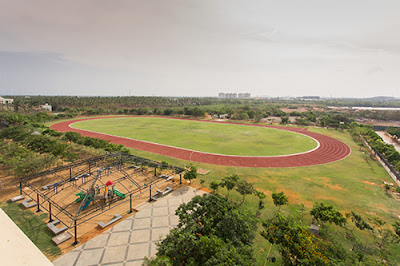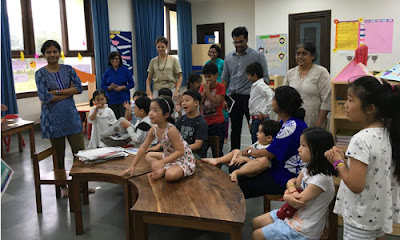On a wholesome to get your child admit in the best residential school India is not an easy cake. Firstly, parents have to search for such International Boarding School India which retain good name in the city. Best residential school in Chennai for your child are the ones which arrange perfect prospects for them, so that they can grow into responsible individual. Parents are advised to inspect about the ambience of the school in as much detail as possible. Accordingly look through at the available top boarding schools India and then make choice astutely.
Top Boarding Schools India
International boarding school India has their website which enables to offer weighty information about the school. Pick a school; feel free to read and comprehend their prospectus, then make out a list of questions and communicate the school to clear those queries. Preferably contact such parents who already have their children in that specific school. A neutral outlook could be awfully valuable.
Every Best Residential School India schedule different program for their student and you must specifically inspect what your child actually requires. Clearly you will then consider only such schools which can handle your child's problems with due care. It is always important for schools to perform well in academics and thereafter academic performance, international schools India must possess self-esteem and a high self-confidence. Match up these important concerns before finalizing school for your child:
Ratio of attention: Check out the ratio of consideration and attention paid to individual student by the teachers. Usually top residential school Jabalpur MP has class with small student sizes that help teachers to connect with every student in the classroom easily. Classroom settings are often exclusively designed in such a way to embolden student partaking and eye contact among each one in class.
Faculty: In Top 10 international schools in India the majority of faculty has qualified degrees either in academic or any other specialty. Such advance faculty imparts quality education to the students.
Worth available resources: Student resources at best boarding school India such as the library, canteen facilities, athletic complexes, etc. can often be high-class comparative to local alternatives.
Challenging academic: Curriculums at international boarding schools India are operated at different career oriented patterns. Students are impelled to question “why”, grow into inquisitive, and overcome knotty problems.
At Sarvalokaa International School, CBSE Schools MP education is taken on a comprehensive meaning. Boarding school India put efforts for a clear mission to not only teaches students in the classroom, but also to assist them in becoming better-rounded person. So while boarding schools are frequently very well at teaching students academically, their less directly determinate assistance should be measured as well. Keep all these points in mind as you inquiry for top boarding schools India options for your child.
For more details visit us @ Sarvalokaa
Source: http://gyangangainternationalschool.blogspot.com
Top Boarding Schools India
International boarding school India has their website which enables to offer weighty information about the school. Pick a school; feel free to read and comprehend their prospectus, then make out a list of questions and communicate the school to clear those queries. Preferably contact such parents who already have their children in that specific school. A neutral outlook could be awfully valuable.
Every Best Residential School India schedule different program for their student and you must specifically inspect what your child actually requires. Clearly you will then consider only such schools which can handle your child's problems with due care. It is always important for schools to perform well in academics and thereafter academic performance, international schools India must possess self-esteem and a high self-confidence. Match up these important concerns before finalizing school for your child:
Ratio of attention: Check out the ratio of consideration and attention paid to individual student by the teachers. Usually top residential school Jabalpur MP has class with small student sizes that help teachers to connect with every student in the classroom easily. Classroom settings are often exclusively designed in such a way to embolden student partaking and eye contact among each one in class.
Faculty: In Top 10 international schools in India the majority of faculty has qualified degrees either in academic or any other specialty. Such advance faculty imparts quality education to the students.
Worth available resources: Student resources at best boarding school India such as the library, canteen facilities, athletic complexes, etc. can often be high-class comparative to local alternatives.
Challenging academic: Curriculums at international boarding schools India are operated at different career oriented patterns. Students are impelled to question “why”, grow into inquisitive, and overcome knotty problems.
At Sarvalokaa International School, CBSE Schools MP education is taken on a comprehensive meaning. Boarding school India put efforts for a clear mission to not only teaches students in the classroom, but also to assist them in becoming better-rounded person. So while boarding schools are frequently very well at teaching students academically, their less directly determinate assistance should be measured as well. Keep all these points in mind as you inquiry for top boarding schools India options for your child.
For more details visit us @ Sarvalokaa
Source: http://gyangangainternationalschool.blogspot.com







